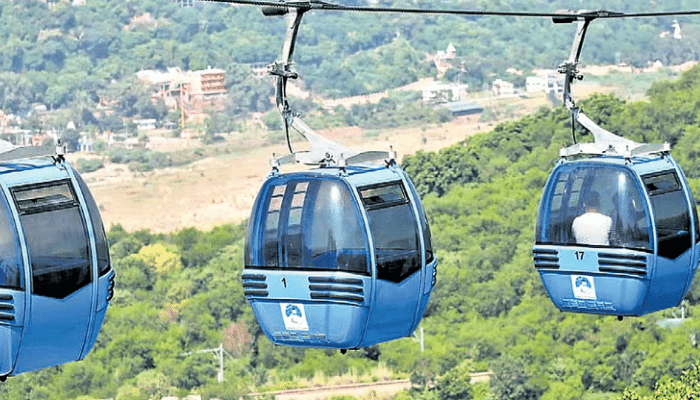A New Chapter in Idukki’s Tourism Story
The Kerala Tourism Department has officially approved a feasibility study for the Moolamattom–Nadukani cable car project, marking a major leap forward in Idukki’s tourism journey. This initiative aims to redefine travel in the high ranges by combining adventure, sustainability, and breathtaking scenery.
Located in the heart of Kerala, Idukki is famous for its misty hills, deep valleys, and untouched forests. Now, with the government’s fresh approval, the district’s tourism appeal is ready to soar to new heights — quite literally.
Government Backs the Project with ₹29.5 Lakh
To begin with, the state government has sanctioned ₹29.5 lakh for the feasibility study. This study will evaluate the project’s technical design, economic impact, and environmental safety.
Furthermore, the Kerala State Budget 2025–26 has already earmarked ₹3 crore for the upcoming stages. This financial commitment clearly shows the government’s vision to promote eco-friendly tourism and create more adventure experiences in Kerala.
Connecting Moolamattom to Nadukani Pavilion
The Moolamattom–Nadukani cable car will link Moolamattom, known for its underground hydroelectric power station, with Nadukani Pavilion, a stunning hilltop viewpoint. As a result, travelers will soon enjoy a unique bird’s-eye view of Ilaveezhapoonchira, Vagamon, and even the Arabian Sea on clear days.
Additionally, the cable car will offer a smooth, scenic ride that reduces the need for vehicles on narrow hill roads. Therefore, it will help reduce pollution while enhancing accessibility for tourists of all ages.
Minister Riyas: “A New Dimension to Kerala Tourism”
Tourism and Public Works Minister P. A. Mohamed Riyas explained that the project would give travelers a new visual dimension of Kerala’s landscapes.
“The cable car will open up unmatched aerial views of Nadukani Pass, Ilaveezhapoonchira, Vagamon, and the distant coastline. It will create a breathtaking experience that truly defines Kerala’s tourism potential,” he said.
In addition, the minister emphasized the government’s long-term goal of developing sustainable tourism infrastructure that respects nature while generating employment.
Study to Be Conducted by KATPS and IPRRC
The feasibility study will be carried out jointly by the Kerala Adventure Tourism Promotion Society (KATPS) and the Indian Port Rail and Ropeway Corporation (IPRRC). Together, they will analyze:
- The alignment and structure of the cable route.
- The economic feasibility and expected tourist inflow.
- Environmental measures to protect Idukki’s fragile ecosystem.
- The maintenance model for long-term sustainability.
Once their findings are reviewed, the project’s blueprint and next steps will be finalized.
A Greener Future for Idukki Tourism
Importantly, this project supports Kerala’s goal of promoting eco-conscious travel. By connecting major tourist hubs, the cable car will encourage visitors to explore responsibly and reduce traffic in hill regions.
Moreover, it will attract adventure seekers, photographers, and families who wish to enjoy Idukki’s charm without disturbing its natural balance. Local communities will also benefit through new business opportunities and steady income.
Economic Growth and Local Empowerment
The project will directly and indirectly create new jobs in transport, hospitality, and local commerce. Homestays, restaurants, and handicraft shops in Moolamattom and Nadukani are expected to see a sharp rise in visitors.
In turn, this increased footfall will boost local revenue, improve infrastructure, and inspire further investments in tourism. Consequently, Idukki could emerge as one of South India’s top adventure tourism destinations.
Moolamattom–Nadukani Cable Car Project at a Glance
- Project Stage: Feasibility Study Approved
- Study Budget: ₹29.5 lakh
- Total Allocation (2025–26): ₹3 crore
- Agencies Involved: KATPS and IPRRC
- Objective: Promote eco-tourism and aerial connectivity
- Location: Idukki district, Kerala
- Expected Impact: Boost tourism, reduce road traffic, support sustainability
